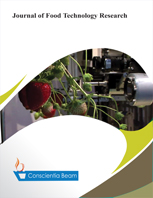Indigenous knowledge and marketing of edible wild fruits in Zimbabwe: A case study of Shurugwi, Gokwe south, Chirumhanzu, and Chivi districts
DOI:
https://doi.org/10.18488/jftr.v11i3.3806Abstract
This study examines Zimbabwe’s indigenous knowledge and marketing of edible wild fruits. Edible wild fruits contribute significantly to rural communities’ nutrition in Zimbabwe. Recent research has shown that the indigenous fruits are now sold at markets and contribute to household income. A cross-sectional study was conducted in four districts of Shurugwi, Gokwe South, Chirumhanzu, and Chivi, in Zimbabwe, to investigate the role of traditional beliefs on marketing practices of edible indigenous fruits. A semi-structured questionnaire, which covered the demographic characteristics of respondents, type of fruits, preservation or processing methods, marketing channels, pricing, and uses of the fruits and income, was used. Interviews took place with 150 respondents in total. Most (51.4%) of the respondents were in the age group 35-54 years of age, and were mostly females. Although their main source of income was farming (48.7%), a reasonable income (10%) was obtained from trading, including selling edible wild fruits. The four districts reported a total of 42 edible indigenous fruits. The most common fruits were Uuapacakirkiana, Vitexpayos, Azanzagarckeana, Ximenia. caffra, Strychnosspinosa, Diospyrosmespiliformis, Vangueriainfausta, Grewiaflavescens, and Adansoniadigitata.Respondents indicated that they consumed the fruits for nutritional (71.3%) and medicinal (42%) purposes. Drying, juicing, and fermentation were reported as the most common methods of processing indigenous fruits at household level. The study showed that there is potential for indigenous edible wild fruits to contribute to nutrition and household income. The marketing of the fruits needs to be regulated across the value chain.

